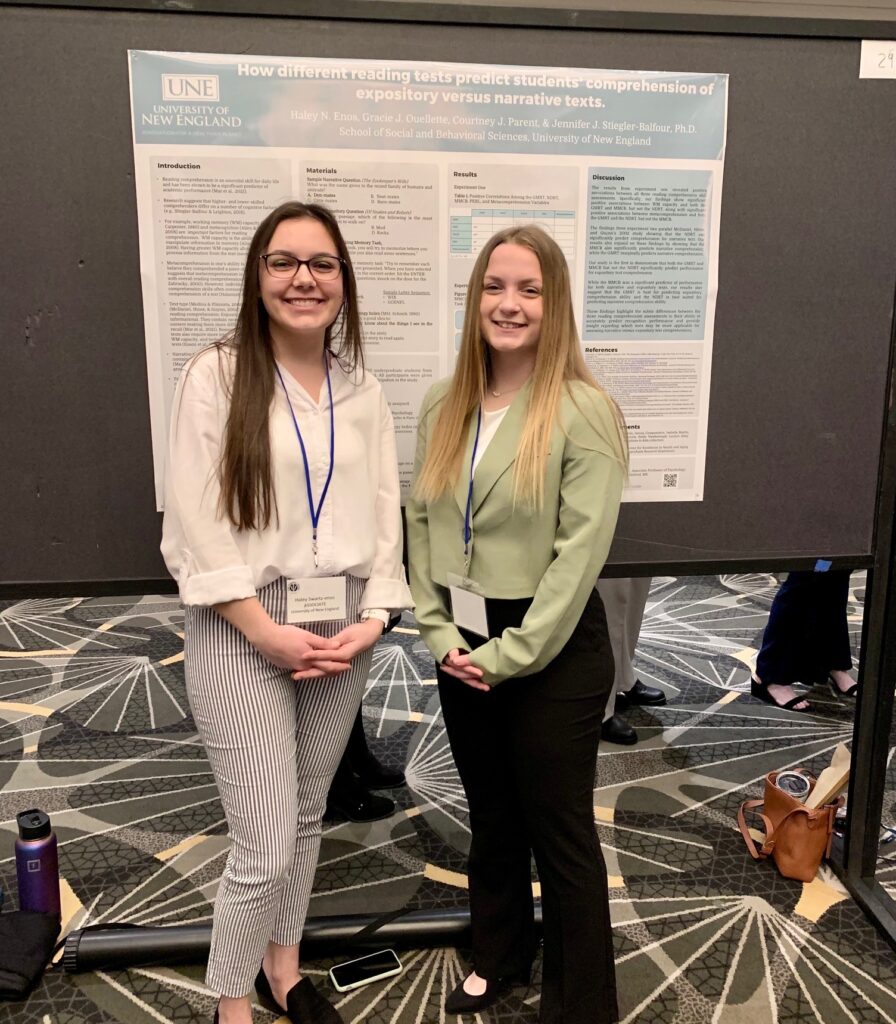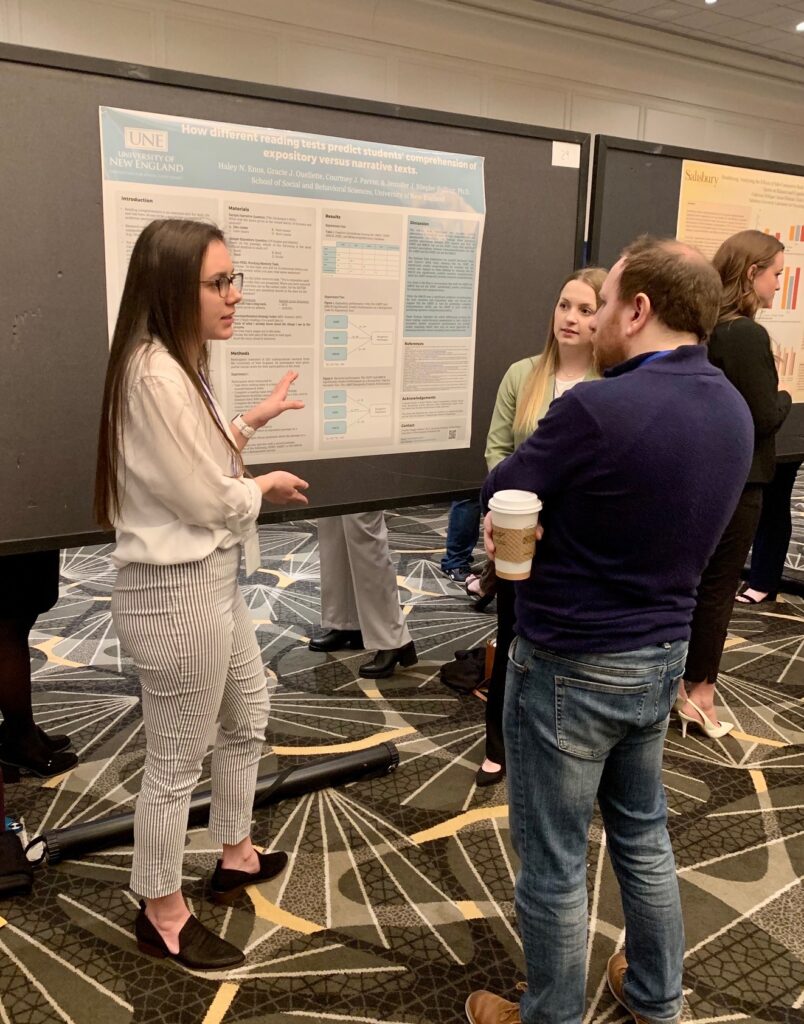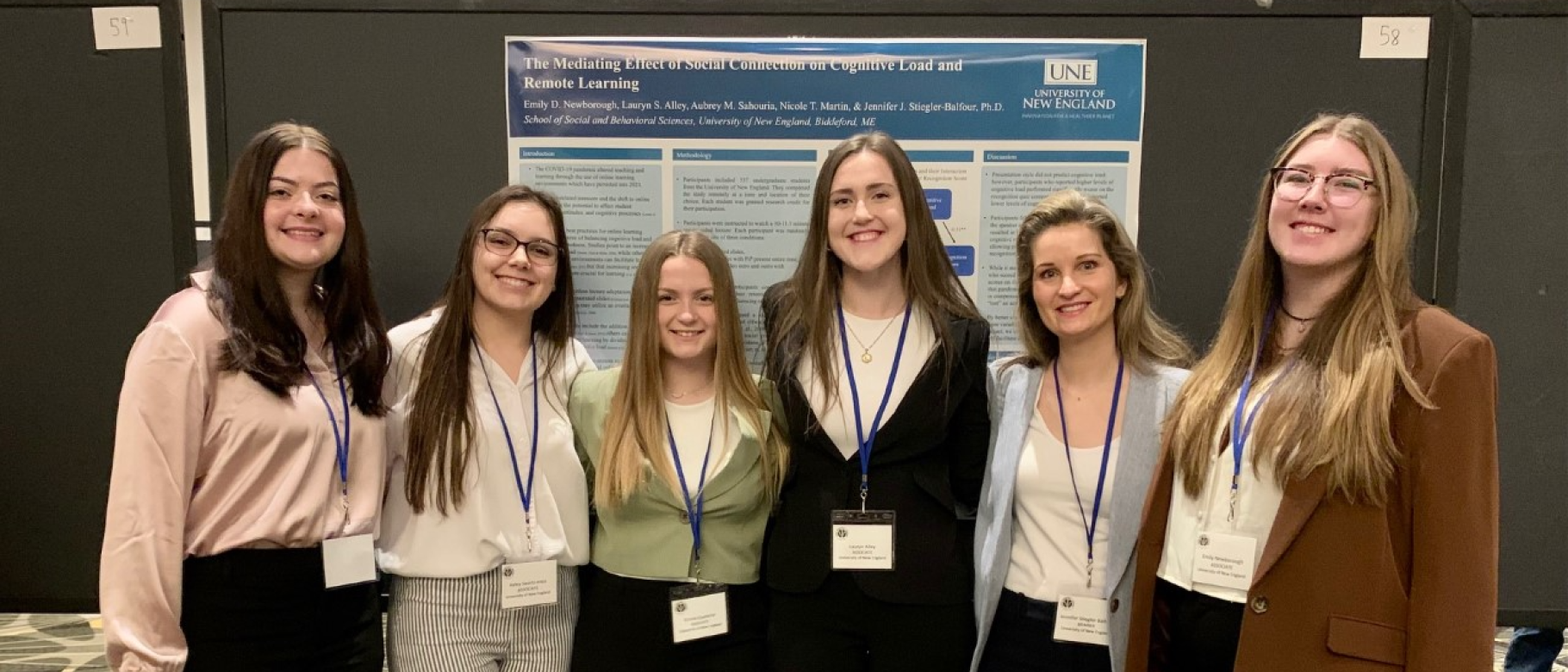
Click here to view the full news article that was originally published on the UNE website
Jennifer-Stiegler Balfour, Ph.D., associate professor in and assistant academic director of the School of Social and Behavioral Sciences, along with research assistants Emily Newborough (Psychology, ’23), Haley Enos (Psychology, ’23), Gracie Ouellette (Psychology, ’24), Lauryn Alley (Psychology, ’24), and Sarah Gray (Psychology, ’25) presented findings from two research projects during the 94th annual Eastern Psychological Association (EPA) conference on March 3rd in Boston.
Each year, the EPA conference provides members the opportunity to share research developments and new findings. EPA’s membership encompasses a broad range of professions across the discipline, from clinicians and neuroscientists to experimental psychologists of every type, as well as applied psychologists in private practice, industry, and the military.
Newborough and Alley presented research conducted with Stiegler-Balfour, along with alums Aubrey Sahouria ’22 (Neuroscience) and Nicole Martin ’21 (Psychology), on the mediating effect of social connection on cognitive load and remote learning.
In the study, the use of presentation mode offered through online video conferencing platforms, such as Zoom, personal factors affecting social connectedness, and cognitive load were examined to better understand our ability to learn remotely.
Although results showed that lecture presentation mode did not appear to impact participants’ recognition score directly, presentation style did affect social connection, which influenced cognitive load and ultimately predicted recognition scores. These results point to the importance of social connection in online learning environments. This study was funded by an Association of Psychological Sciences grant for Teaching and Public Understanding of Psychological Sciences awarded to Stiegler-Balfour.
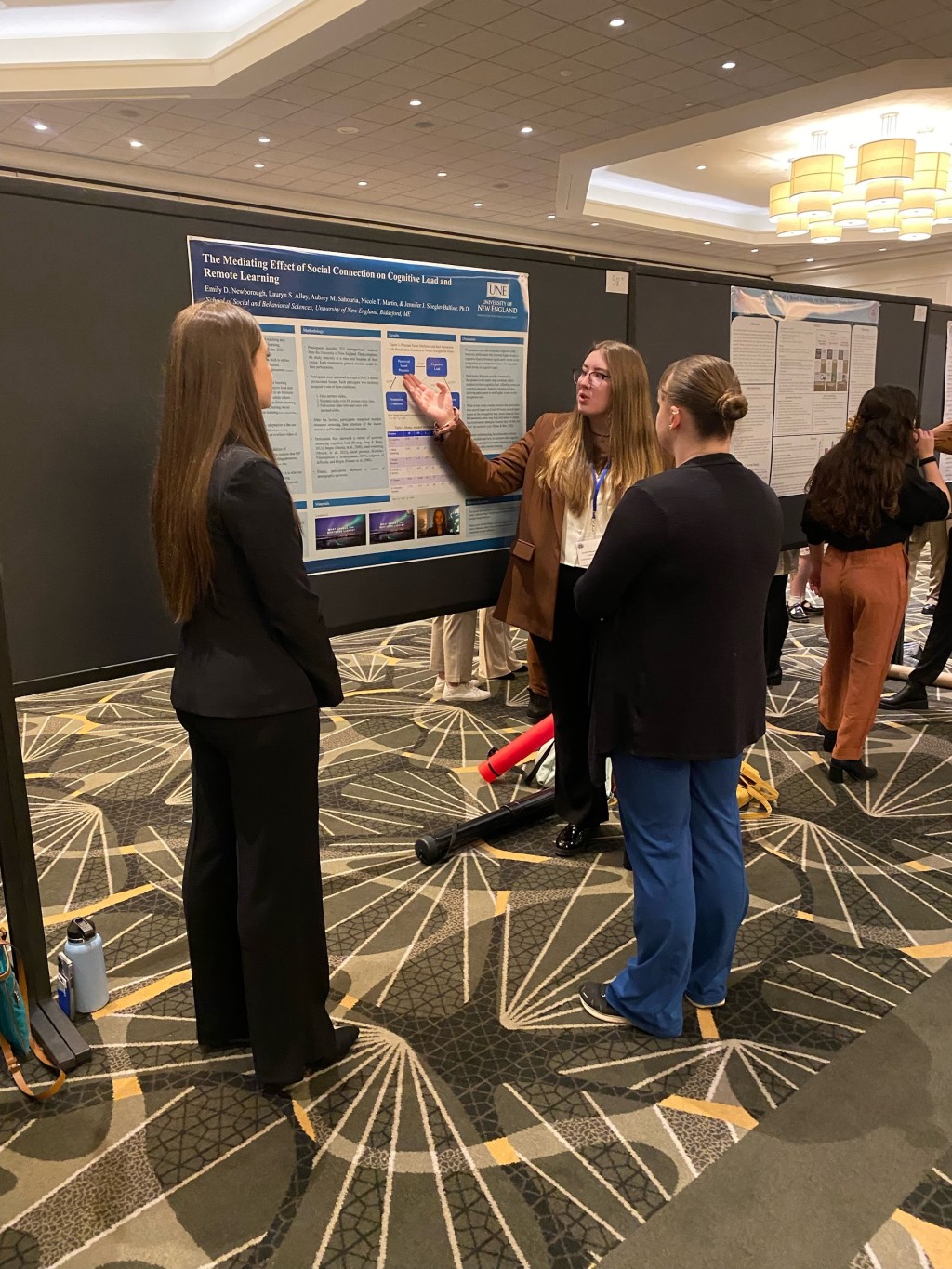
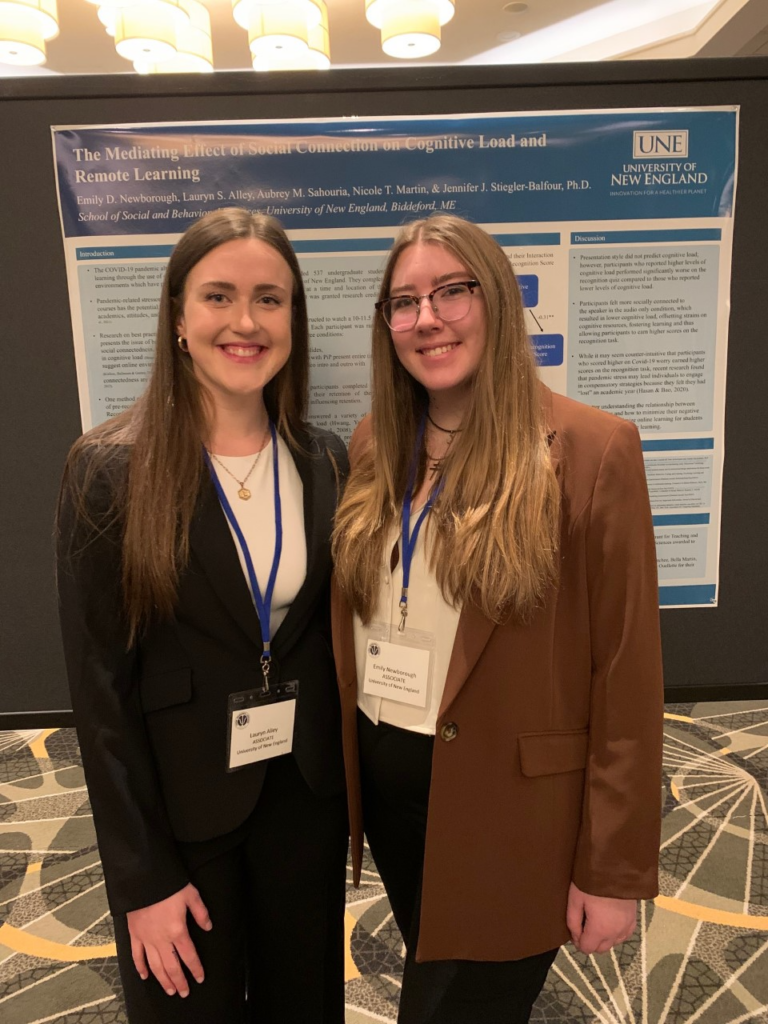
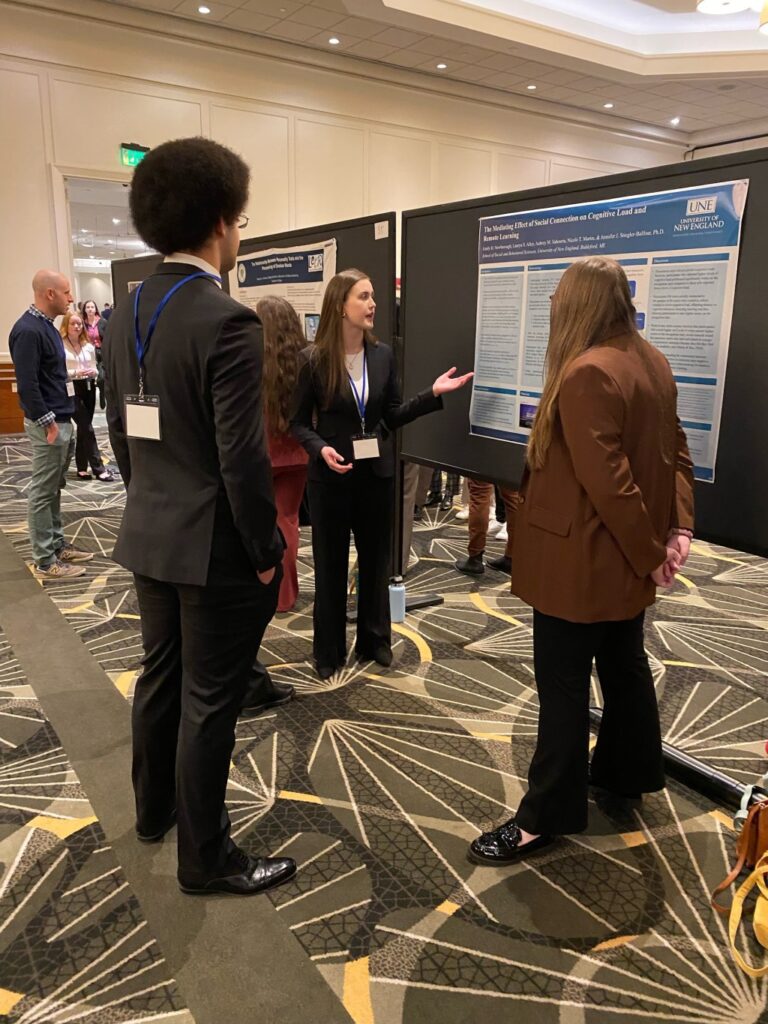
Enos and Ouellette shared findings from research conducted with alum Courtney Parent ’19 (Psychology) and Stiegler-Balfour examining how different reading tests predict students’ comprehension of expository versus narrative texts. In the study, three reading comprehension tests were used to determine which one best predicts comprehension for different text types.
The study’s results revealed significant differences in the capability of each of the three different comprehension texts to predict recognition performance for narrative versus expository texts. These findings should help guide researchers and educators in their efforts to optimize the learning experience for students, Stiegler-Balfour said. Funding for this study was made possible through the UNE College of Arts and Sciences Summer Undergraduate Research Experience (SURE).
“To see all the hard work of Dr. Stiegler-Balfour’s Reading Comprehension and Cognition Lab come to fruition, and being able to present our findings at EPA with my fellow research assistants, has been an unforgettable and rewarding experience,” Newborough remarked. “So many happy memories have been created over the course of my time at UNE, and presenting at EPA, discussing research, creating connections, working with friends, and meeting experts in the field have been a staple in that.”
Enos said the experience was bittersweet given it will have been the last regional conference of her academic career.
“All of my fellow lab members and I worked so hard to put together our research, and it was such a rewarding experience to present our work,” she commented. “I couldn’t think of a better way to wrap up my undergraduate career than with this group of intelligent and hard-working women.”
